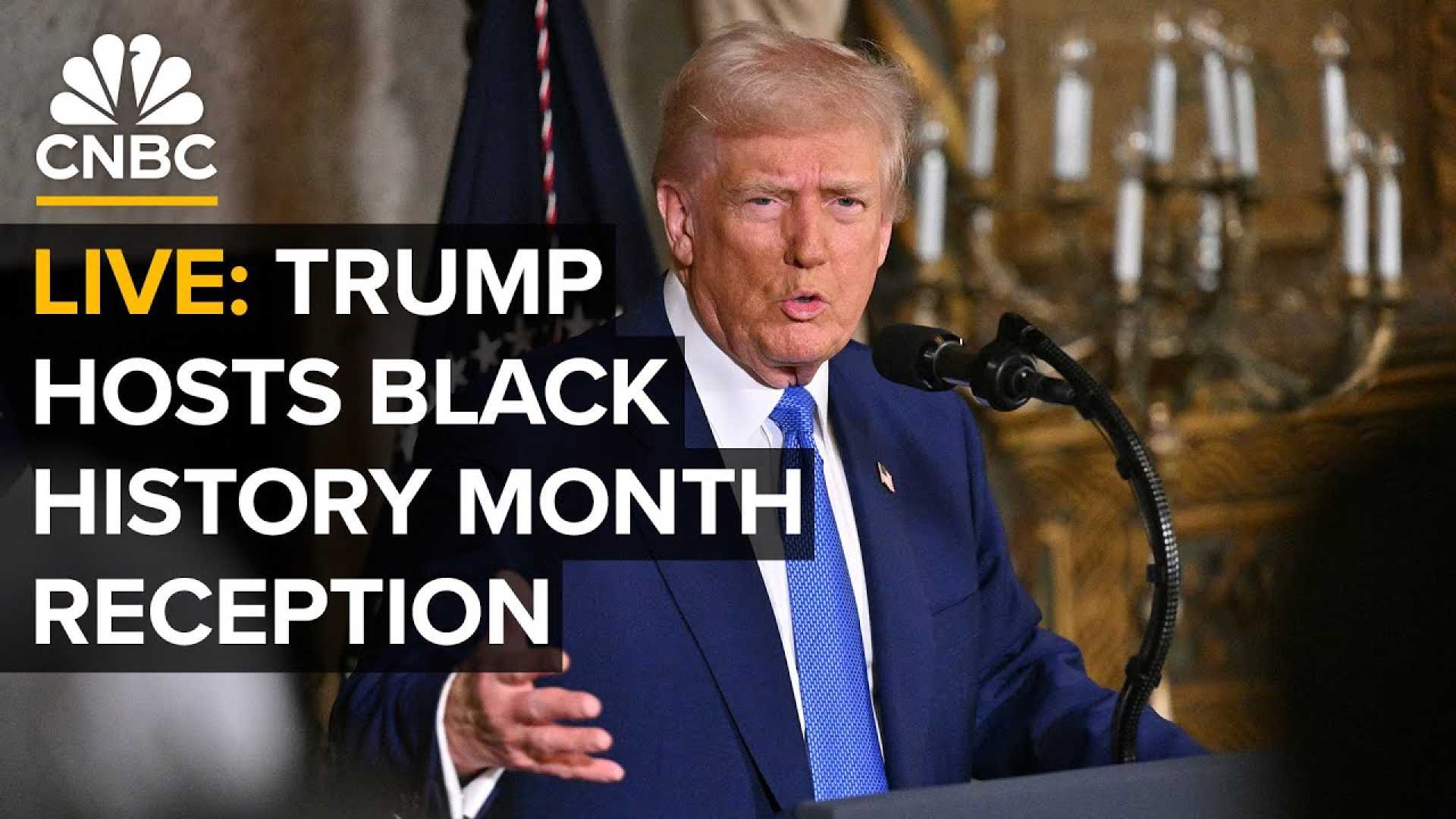Politics
Trump’s Black History Month Celebration Faces DEI Controversy

WASHINGTON (AP) – President Donald Trump will host a Black History Month celebration at the White House on Thursday, an event juxtaposed against his recent executive order curtailing diversity, equity, and inclusion (DEI) initiatives within the federal government. The administration’s actions have stirred confusion among federal agencies about how to acknowledge historical and cultural contributions of Black Americans.
The gathering will take place in the East Room and is expected to include several prominent Black political figures and activists who support Trump. Attendees will include Republican Sen. Tim Scott (S.C.), Rep. John James (Mich.), prison reform advocate Alice Johnson, Alveda King, niece of civil rights leader Martin Luther King Jr., and Herschel Walker, who has been nominated by Trump to serve as U.S. ambassador to the Bahamas. Additionally, figures from the sports and entertainment industries, such as former ESPN host Sage Steele and rap artists Kodak Black and Lil Boosie, are expected to attend.
This event was initially scheduled for last week but was postponed due to severe weather. The celebration occurs amidst a broader critique of Trump’s approach to racial issues and DEI policies, which he labeled as forms of discrimination. Following his directive, the Department of Defense announced that “identity months” would no longer receive official recognition during working hours.
Trump’s executive order aims to dismantle DEI programs, impacting how federal agencies may acknowledge race in reports and historical events. Although the White House has publicly affirmed its stance, individual agencies maintain the autonomy to decide whether or not to continue recognizing Black History Month.
On February 1, Secretary of Transportation Sean Duffy stated that his department would cease participating in celebrations associated with immutable traits, while Secretary of State Marco Rubio expressed that the removal of DEI policies aligns with a shift away from divisive political and cultural causes.
In light of these actions, major corporations are re-evaluating their DEI strategies, apprehensive about potential legal ramifications tied to the administration’s directives. During the 1970s, Black History Month received recognition from all sitting U.S. presidents, and Trump observed it during his initial term.
CJ Pearson, a national co-chair of the Republican National Committee’s youth advisory council, emphasized the importance of Black History, stating, “Black History is American history… It is a story of strength, resilience, and dogged perseverance.” Pearson, who plans to attend the White House event, defended Trump’s policies against criticisms from various civil rights leaders and Democrats.
However, some within the Republican Party have expressed concerns about the implications of Trump’s DEI stance, predicting it may jeopardize the party’s inroads with Black voters. Republican strategist Raynard Jackson warned that if the administration doesn’t change course, it risks alienating the coalition of Black, Asian, and Hispanic voters that Trump worked to assemble.
As Trump prepares for the 2024 campaign, efforts have been made to engage Black voters, with outreach initiatives including events in major cities and collaborations with Black media figures. Trump has seen a slight increase in support among Black male voters compared to the previous election cycle, according to AP VoteCast.












